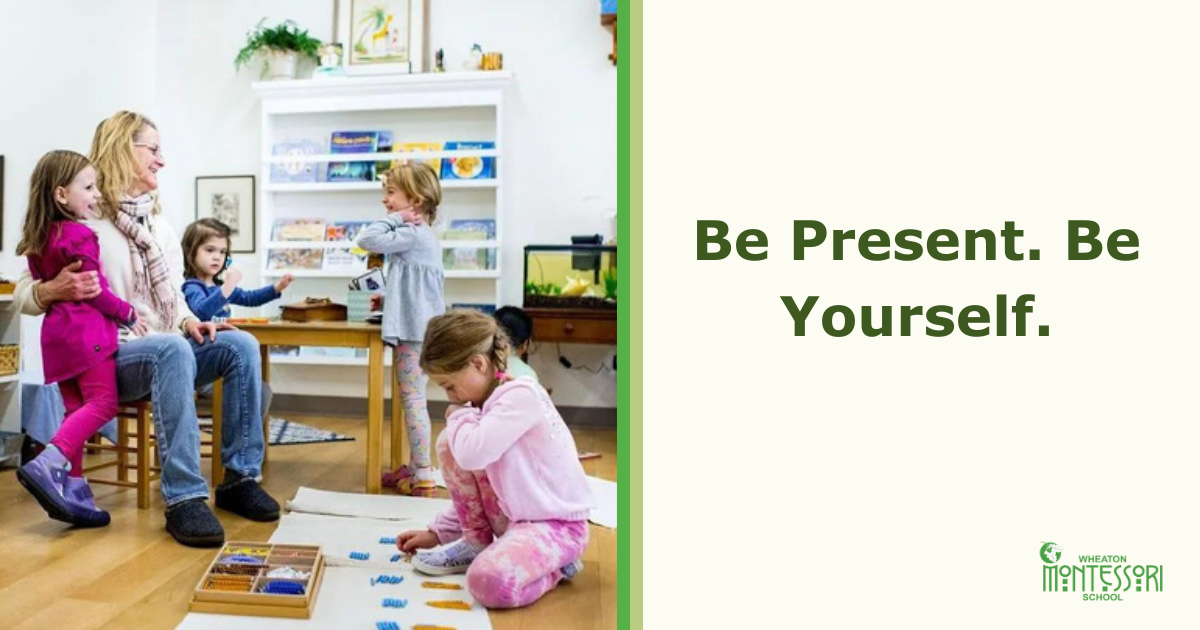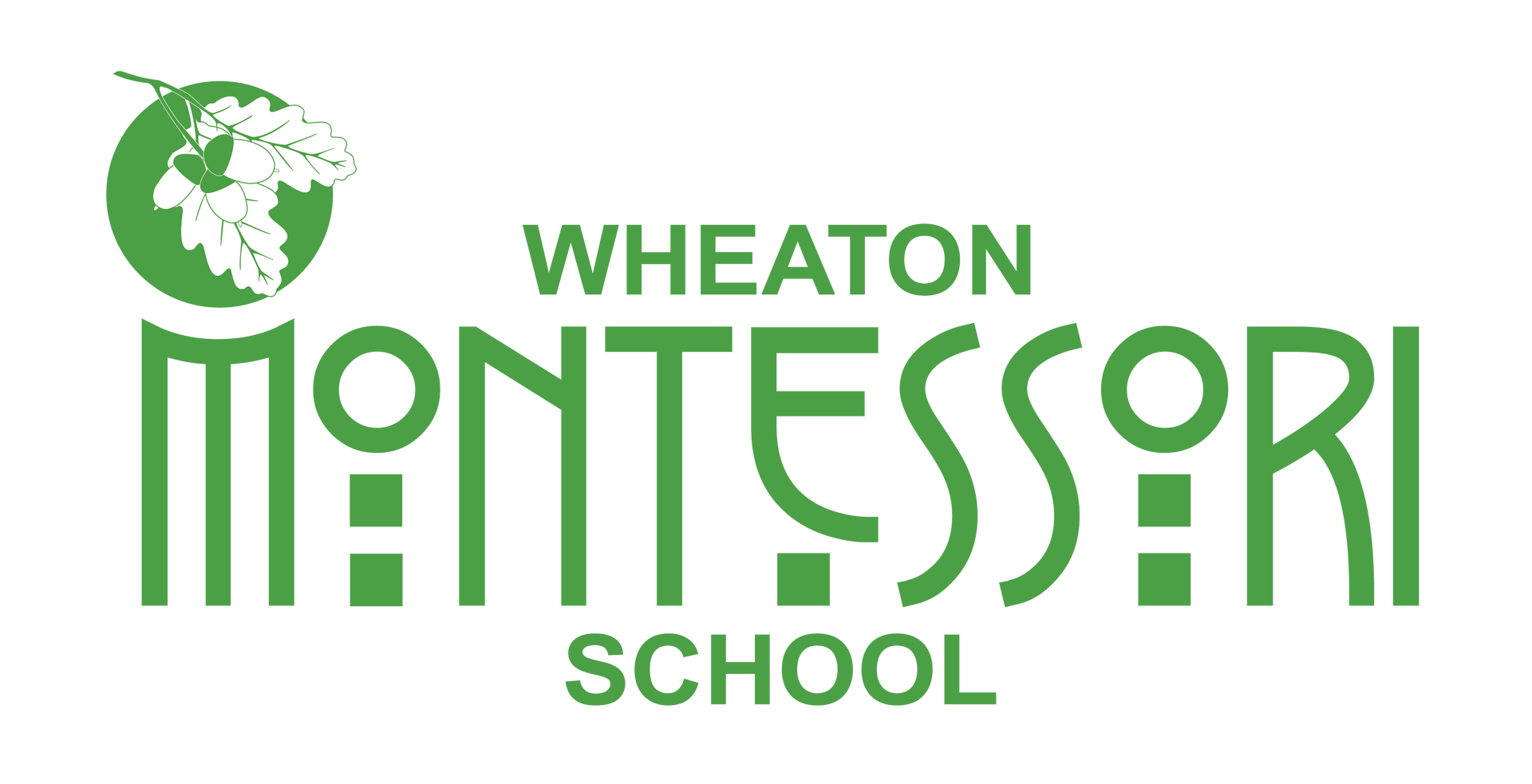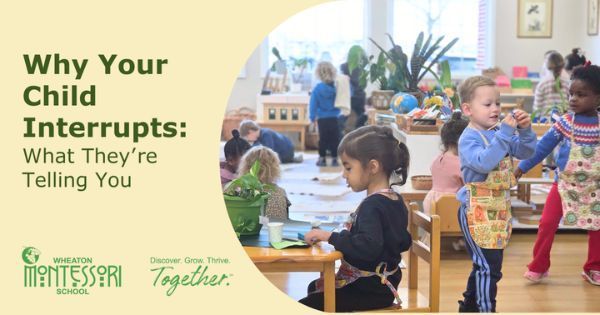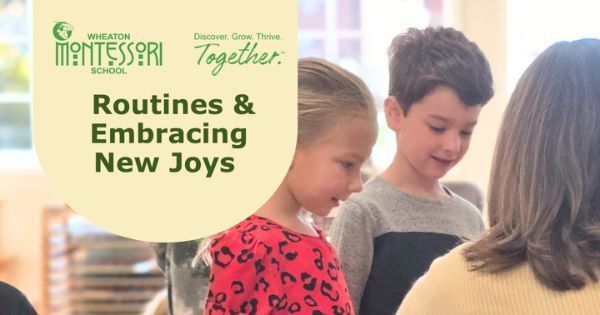Mrs. Rogers has been a Montessori teacher for almost 25 years. She is a primary teacher at Wheaton Montessori School in Chicago’s western suburbs. Mrs. Rogers has a bachelor’s degree in religious studies and English from Albion College and a master’s degree in theological studies from Candler Seminary at Emory University. She completed AMI primary training in Atlanta, AMI assistants to infancy in Denver, and the AMI Montessori Orientation to Adolescent Studies. She has also completed the comprehensive and advanced continuum Orton Gillingham training. In her time away from school Jennifer enjoys baking bread, reading, yoga, and writing. She also enjoys camping and hiking with her family. When she grows up, she wants to be a Montessori grandma.

Pause beside a busy playground on a sunny afternoon and listen. “Look at me!” children almost always shout to their parents as they swing, climb, slide, and hang from monkey bars. For kids, knowing a parent is watching is affirming, uplifting, and restorative.
Observation is the foundation of Maria Montessori’s educational method, an essential habit of good teachers and parents. Observation is Montessori’s word for the art of watching and listening with informed intelligence and an enduring investment in the health of a child. She expected adults who worked with children to watch and listen with the intention of aiding the development of children, and the expectation that we too would be transformed by our observations.
Simone Weil described attention as a rare and pure form of generosity. Weil was a mystic and a philosopher, a person now celebrated as one of the great spirits of her time. Writing at the same time as Montessori, she also worked toward a vision of peace. Weil’s writing makes the human aspiration to build a better world seem deceptively simple. For Weil and Montessori, paying attention is a deliberate, simple practice, but also a form of transcendence, a quiet but active prayer for the betterment of the human race.
Weil and Montessori were social activists. They lived in a war-torn world, and were primarily concerned with shattered lives, impoverished families and neglected children. Weil died too young, and was not herself a mother. Montessori was a refugee; her only son did not live with her until he was a teen. Nonetheless, Weil and Montessori shared a determination to be fully present at a particular moment in human history. The attention they gave to the people around them remains the strongest, surest example for parents working to guide their children toward lives of health, purpose, and peace.
Attention
Being an eyewitness to every milestone of childhood, every trip to the playground, every recital and performance, is not a goal . . .should not be a goal. Some of the first joys of childhood are conversational moments when kids get to describe events their parents did not see. A young child’s dramatic re-telling of her day often has a flimsy relationship with truth, but there is no doubt that kids are enthusiastic storytellers.
Parents can learn, usually sluggishly, how to listen to a good story without interrupting or stumbling into worry, conflict resolution, or unnecessary analysis. A child’s story will probably be both true and imagined, frustrating and funny. Having a parent fully present, attentive, and engaged is often all that a child needs to feel confident and renewed.
Two routine events in the life of a young child should whenever possible include a parent’s full, undistracted attention: meals and reading. There are as many ways to be a good parent as there are varieties of good people who love well, but reading to children and eating with children always provides a sure, solid foundation for growth and learning. Presence and attention offered at meals and by reading aloud are, magically, often more than enough for a young child to thrive. Paying attention routinely is, in Weil’s words, generous. To a young child, predictable, personal attention with a parent, a meal, or a book, feels like a gift.
Presence
It is absolutely certain that the secret of future human power lies hidden within humanity as it develops –within young people.
—Maria Montessori, Education and Peace
Montessori’s greatest contribution was not the development of an educational curriculum, though Montessori classrooms are world-renowned. Montessori’s significant and lasting insight was that for children to thrive, parents and teachers must observe.
Parents’ consistent presence and attention does not guarantee our children will grow up to be “just like” us. There is a limited sense in which a parent’s modeling a particular set of values and morals is of lasting value to a child. There is a much deeper, stronger sense in which a fully integrated parent’s ability to be present and attentive nudges a child toward her own unique health and confidence. The difference is huge: instead of imitating, or seeking attention to affirm her sense of self, a child learns to look within.
A child raised with presence and attention can make mistakes, behave in ways he knows will not be tolerated, change his mind about the role he wants to play in his expanding world, always knowing he will still be loved.
Parenting is never as simple as we’d like it to be, but good parenting happens only when we act in accordance with our beliefs. The best parenting happens when a parent can be fully, wholeheartedly present to meet the needs of a child at particular moments in time, knowing the moment will pass, and that children’s needs change as they grow. Our ability to understand and respond appropriately to a child today may not be the same tomorrow. That is why Montessori insisted on observation. Children grow toward strength and peace within when the people who love them are both present and paying attention.
For those of you who have raised your children with Jennifer as a teacher, visit her during the Open House on January 16 at 6:00 p.m.
For those of you looking for your next educational environment, we look forward to meeting you during the Open House.
Bio:
Jennifer Rogers



